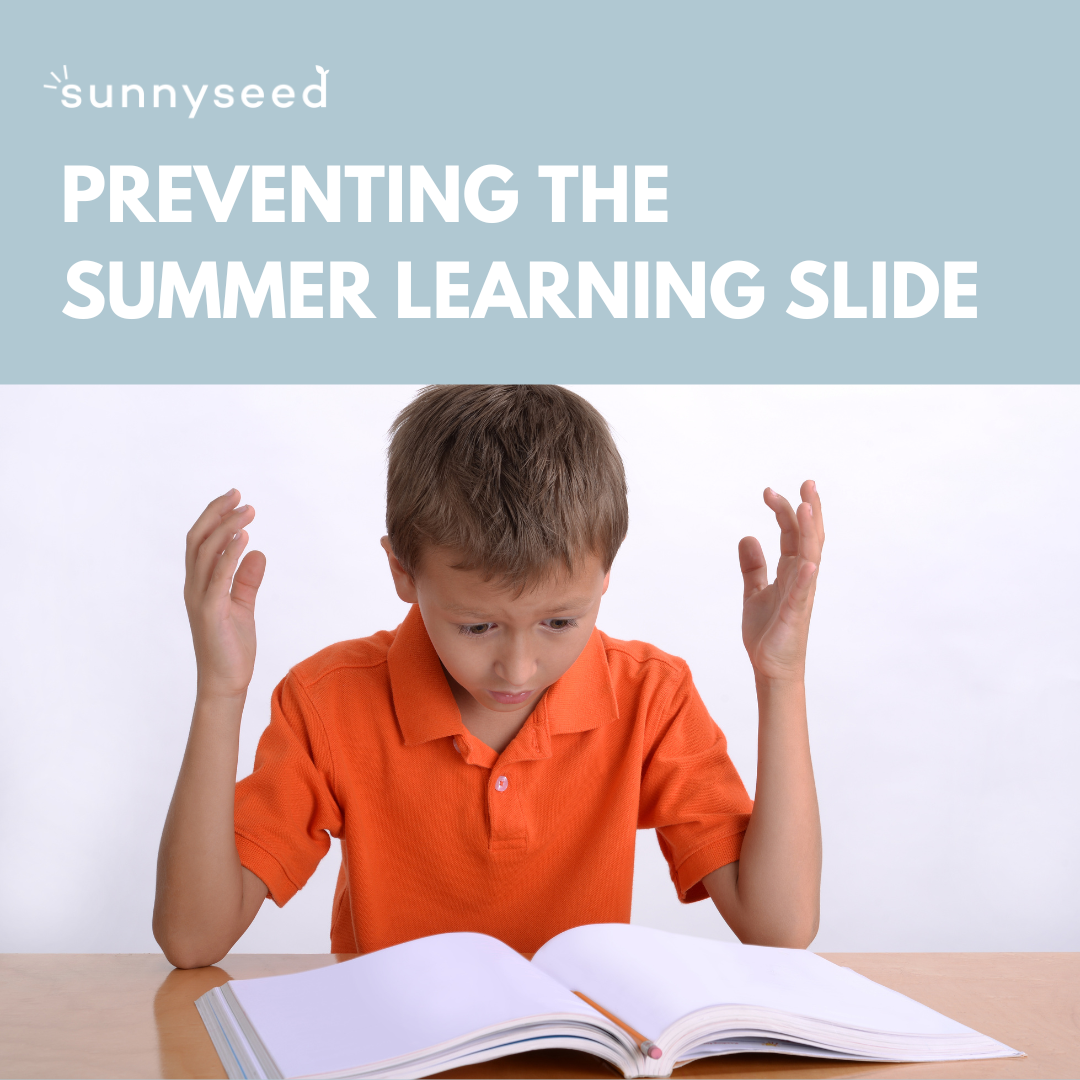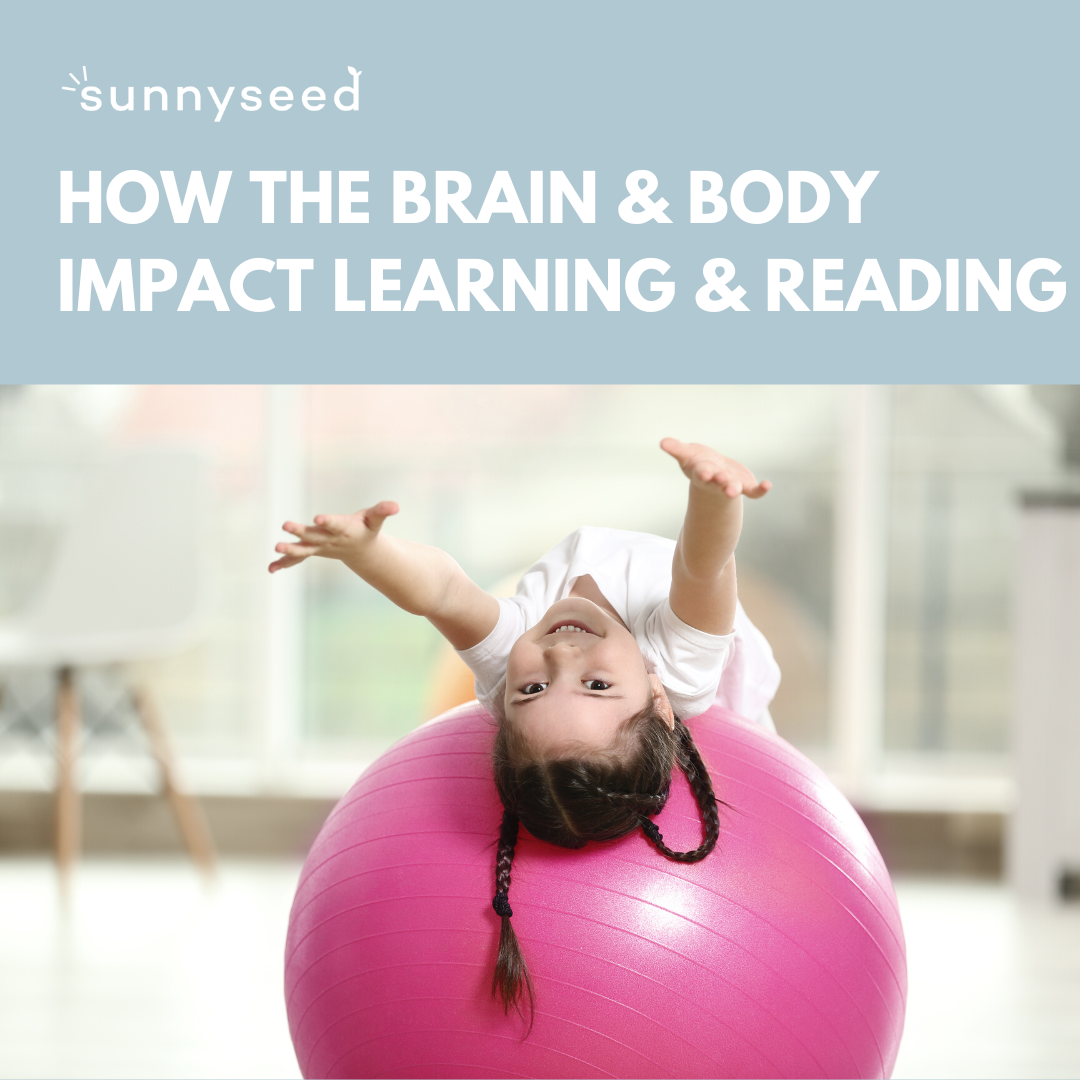The Scary Truth About Screen Time
One of the most frequently asked questions I receive from parents is "How do I get my child to play (or read) more?" and the truth is we must consider how much screen time the child gets. I'm not here to judge or shame, but it is important to recognize why we can't expect books to compete with TV. Young, impressionable, developing brains just aren't wired that way.
Screen-time affects our brains and bodies at multiple levels, manifesting in various mental health symptoms related to mood, anxiety, and behavior. It has been linked to sleep issues, attention problems, and obesity. But most concerning is that excessive screen time early in life has been associated with cognitive, language and social and emotional delays (The Journal of Pediatrics, 2010).
Despite the known concerns, screen time has more than doubled since 1997 for kids younger than 2. And this is not because of the rise of smartphones and tablets. Time spent in front of the TV is actually the top driver of the increase (Source: The Journal of JAMA Pediatrics). The American Academy of Pediatrics recommends no screen time for children younger than 18 months old.
The fast changes/frame rates of television shows, which have also drastically increased since we were kids, has been shown to negatively affect a child’s visual processing system and vestibular system. A child’s visual processing system is still significantly developing before the age of 2, and final development isn’t reached until 8 or 9 years old.
Screen-time has a drug-like effect on the brain. When a child engages with a screen (TV or tablet), they are flooded with dopamine and blood flow to their frontal lobe decreases. This makes it difficult for them to regulate their emotions, think creatively, manage stress, or play without such intense dopamine rewards.
If a child’s brain becomes habituated to the fast pace and to the extreme alertness from screen-time, the child may “find the realities of the world underwhelming and understimulating.” - Dr. Dimitri Christakis.
“When a child spends too much time on screens being constantly rewarded, it can become hard to exercise directed attention doing the tasks that aren’t as fun but are necessary in life,” he says.
“EDUCATIONAL” SHOWS
Did you know in 2007 there was a big uproar over baby videos, specifically Baby Einstein videos? A study found infants who watched baby videos had significantly smaller vocabularies than those who had not watched the videos. Well-meaning parents believed these videos would make their children smarter. In fact, there was a major lawsuit against Disney/Baby Einstein for making such claims. Several research studies were completed in response, and again the data showed the more children watched, the worse their vocabulary. Similarly, some parents believed playing the radio, audiobooks, or foreign language tapes to young infants would help them acquire a greater vocabulary. A study by Kuhl found infants’ brains absorbed none of it, despite seeming engaged. Why?
There are two main reasons why screens and audio do not work for language and brain development:
Babies learn to decipher speech partly by lip reading. Before a baby can understand any word meaning, they must understand when a word ends and another word begins. This is called segmentation. Around 7.5 months, a baby can segment speech of people speaking to them, but if they hear speech while looking at something other than an actual face, the speech is endless gibberish.
Babies and toddlers cannot learn from screens becasue the brain cannot easily make the connection between 2D and 3D until 4+ years old.
INTERACTION – A video can’t interact and respond to the sounds a baby makes. There is over a decade of research that highlights the significance of responding in the moment to infants and toddlers. A study found that when four-month-olds and their parents practiced vocal turn-taking, those children would later have greater cognitive ability. Another study found babies and toddlers of high-responders were six months ahead of toddlers of low-responders. How a parent responds to a child’s vocalizations – right in the moment- is the most powerful tool pulling a child from babble to fluent speech. Showing affection to children when they babble also rewards their attempts and increases the frequency and maturity of the babble- something tv can’t do.
NEGATIVE IMPACT ON CHILD DEVELOPMENT
Delayed Language Development
Research published in JAMA Pediatrics suggests that excessive screen time, especially during infancy and early childhood, may delay language development. Children who spend more time in front of screens tend to have smaller vocabularies and poorer language skills compared to those with limited screen exposure.
Children are six times more likely to have language delays if they watch television:
before 12 months of age
as little as 20 minutes before preschool
more than one hour per day
Attention and Behavior Problems
A longitudinal study published in Pediatrics followed children from birth to age 5 and found that higher levels of screen time were associated with an increased risk of attention problems and behavioral issues later in childhood. Excessive screen time may contribute to difficulties in focusing, impulsivity, and hyperactivity.
Studies find “screen-time is associated with inattention problems in preschoolers” PMCID: PMC6469768
Screen time at 12 months old is associated with attention issues at 9 years old.
Kids aged 5 or younger who experience two or more hours of daily screen time are nearly eight times more likely to be diagnosed with focus-related conditions including attention deficit hyperactivity disorder (ADHD)
A study published in JAMA Pediatrics found that higher levels of screen time in preschool-aged children were associated with poorer performance on developmental screening tests. Excessive screen time during early childhood may interfere with brain development, particularly in areas related to language, cognition, and social-emotional skills.
Sleep DisruptioN
Numerous studies have demonstrated a link between screen time and sleep disruption in young children. Exposure to screens, particularly in the hours before bedtime, can interfere with the quality and duration of sleep, leading to bedtime resistance, difficulty falling asleep, and shorter sleep duration.
Obesity Risk
Research published in the International Journal of Obesity suggests that excessive screen time in early childhood is associated with an increased risk of obesity. Sedentary screen-based activities often replace physical activity and outdoor play, contributing to a more sedentary lifestyle and weight gain.
Negative Social and Emotional Development
A study published in JAMA Pediatrics found that higher levels of screen time in preschool-aged children were associated with poorer social and emotional development. Excessive screen time may limit opportunities for real-world social interactions, emotional expression, and development of empathy and interpersonal skills.
Vision Problems
Prolonged screen time, particularly at close distances, may contribute to vision problems such as digital eye strain, nearsightedness (myopia), and dry eye syndrome in young children. The American Academy of Pediatrics recommends limiting screen time to reduce the risk of these visual issues.
Reduced Quality of Parent-Child Interaction
Excessive screen time can disrupt parent-child interactions and bonding. When caregivers and children are engrossed in screens, opportunities for meaningful communication, play, and shared activities may be diminished, affecting the quality of the parent-child rela
RECOMMENDATIONS
The American Academy of Pediatrics (AAP) recommends zero screen time for babies 0-18 months, less than 30 minutes of screen time (if any) for toddlers 18+ months old and preferably co-viewing with an adult.
If your older child is going to enjoy screen time, consider offering it at the same time every day, i.e. one show after nap/quiet time.
We personally save tablets/pads for long travel.
Choose slower paced shows with muted colors.
Mister Rogers Neighborhood
Trash Truck
Elinor Wonder’s Why
Give a Mouse a Cookie
Puffin Rock
How It’s Made
Magnolia Workshops
Bob Ross Painting
The Snowy Day
Yoto Portable Audio Book Player




















